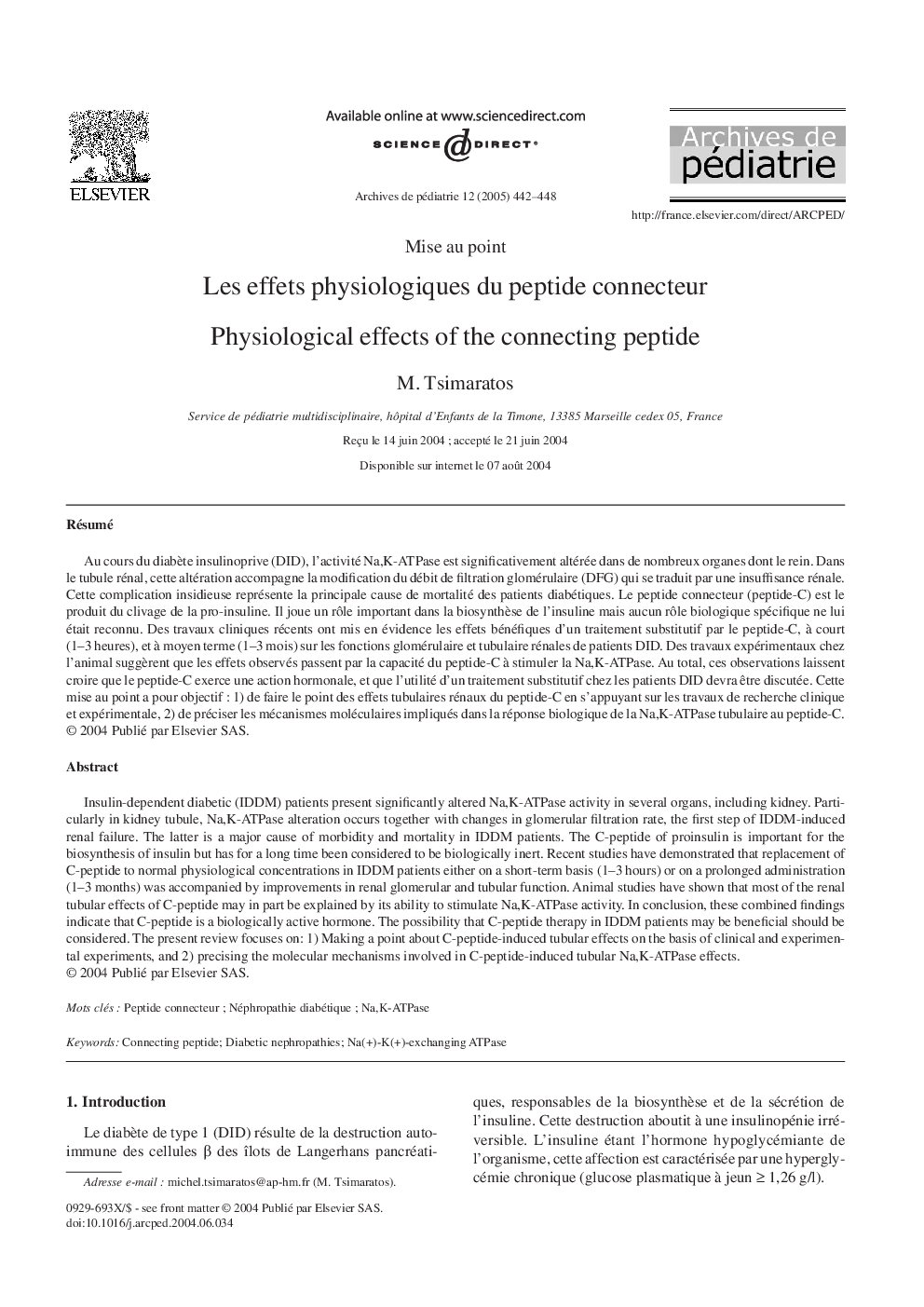| Article ID | Journal | Published Year | Pages | File Type |
|---|---|---|---|---|
| 9369789 | Archives de Pédiatrie | 2005 | 7 Pages |
Abstract
Insulin-dependent diabetic (IDDM) patients present significantly altered Na,K-ATPase activity in several organs, including kidney. Particularly in kidney tubule, Na,K-ATPase alteration occurs together with changes in glomerular filtration rate, the first step of IDDM-induced renal failure. The latter is a major cause of morbidity and mortality in IDDM patients. The C-peptide of proinsulin is important for the biosynthesis of insulin but has for a long time been considered to be biologically inert. Recent studies have demonstrated that replacement of C-peptide to normal physiological concentrations in IDDM patients either on a short-term basis (1-3Â hours) or on a prolonged administration (1-3Â months) was accompanied by improvements in renal glomerular and tubular function. Animal studies have shown that most of the renal tubular effects of C-peptide may in part be explained by its ability to stimulate Na,K-ATPase activity. In conclusion, these combined findings indicate that C-peptide is a biologically active hormone. The possibility that C-peptide therapy in IDDM patients may be beneficial should be considered. The present review focuses on: 1) Making a point about C-peptide-induced tubular effects on the basis of clinical and experimental experiments, and 2) precising the molecular mechanisms involved in C-peptide-induced tubular Na,K-ATPase effects.
Related Topics
Health Sciences
Medicine and Dentistry
Perinatology, Pediatrics and Child Health
Authors
M. Tsimaratos,
